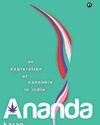
KAREN CHAPELLE, a 50-year-old metalwork artist in Toronto, has always had trouble saying no when people ask her for favours. Usually, she’ll respond with a knee-jerk yes—and just as often find herself regretting it.
“It’s a natural thing for me to want to help people,” says Chapelle. “It’s a good feeling to be useful and needed.” The problem, she adds, is that she has unintentionally trained everyone in her life to expect a yes to their requests, no matter what they are.
Chapelle knows her ‘okaying’ to favours, whether requested by coworkers, friends or her family, often at the expense of her own finances, time or mental health, isn’t good for her. But it’s been a hard habit to break.
Many of us get sucked into saying yes—even when we’d really rather not—to avoid conflict, because we feel sorry for others, or because we even feel ashamed when we put ourselves first. If you have difficulty figuring out when, or how, to say no, here are some tips for breaking the cycle of what one psychologist calls “the disease to please.”
PRIORITIZE YOUR TIME
Learning how to take better care of yourself often goes hand in hand with learning that you’re allowed to put your own needs and wants first, and that doing so doesn’t make you a jerk. In fact, consistently putting yourself last is likely to leave you drained and annoyed—a sure path to jerky behaviour.
Diese Geschichte stammt aus der August 2021-Ausgabe von Reader's Digest India.
Starten Sie Ihre 7-tägige kostenlose Testversion von Magzter GOLD, um auf Tausende kuratierte Premium-Storys sowie über 8.000 Zeitschriften und Zeitungen zuzugreifen.
Bereits Abonnent ? Anmelden
Diese Geschichte stammt aus der August 2021-Ausgabe von Reader's Digest India.
Starten Sie Ihre 7-tägige kostenlose Testversion von Magzter GOLD, um auf Tausende kuratierte Premium-Storys sowie über 8.000 Zeitschriften und Zeitungen zuzugreifen.
Bereits Abonnent? Anmelden

ME & MY SHELF
Siddharth Kapila is a lawyer turned writer whose writing has focussed on issues surrounding Hinduism. His debut book, Tripping Down the Ganga: A Son's Exploration of Faith (Speaking Tiger) traces his seven-year-long journey along India's holiest river and his explorations into the nature of faith among believers and skeptics alike.

EMBEDDED FROM NPR
For all its flaws and shortcomings, some of which have come under the spotlight in recent years, NPR makes some of the best hardcore journalistic podcasts ever.

ANURAG MINUS VERMA PODCAST
Interview podcasts live and die not just on the strengths of the interviewer but also the range of participating guests.

WE'RE NOT KIDDING WITH MEHDI & FRIENDS
Since his exit from MSNBC, star anchor and journalist Mehdi Hasan has gone on to found Zeteo, an all-new media startup focussing on both news and analysis.

Ananda: An Exploration of Cannabis in India by Karan Madhok (Aleph)
Karan Madhok's Ananda is a lively, three-dimensional exploration of India's past and present relationship with cannabis.

I'll Have it Here: Poems by Jeet Thayil, (Fourth Estate)
For over three decades now, Jeet Thayil has been one of India's pre-eminent Englishlanguage poets.

Orbital by Samantha Harvey (Penguin Random House India)
Samantha Harvey became the latest winner of the Booker Prize last month for Orbital, a short, sharp shock of a novel about a group of astronauts aboard the International Space Station for a long-term mission.

She Defied All the Odds
When doctors told the McCoombes that spina bifida would severely limit their daughter's life, they refused to listen. So did the little girl

DO YOU DARE?
Two Danish businesswomen want us to start eating insects. It's good for the environment, but can consumers get over the yuck factor?

Searching for Santa Claus
Santa lives at the North Pole, right? Don't say that to the people of Rovaniemi in northern Finland